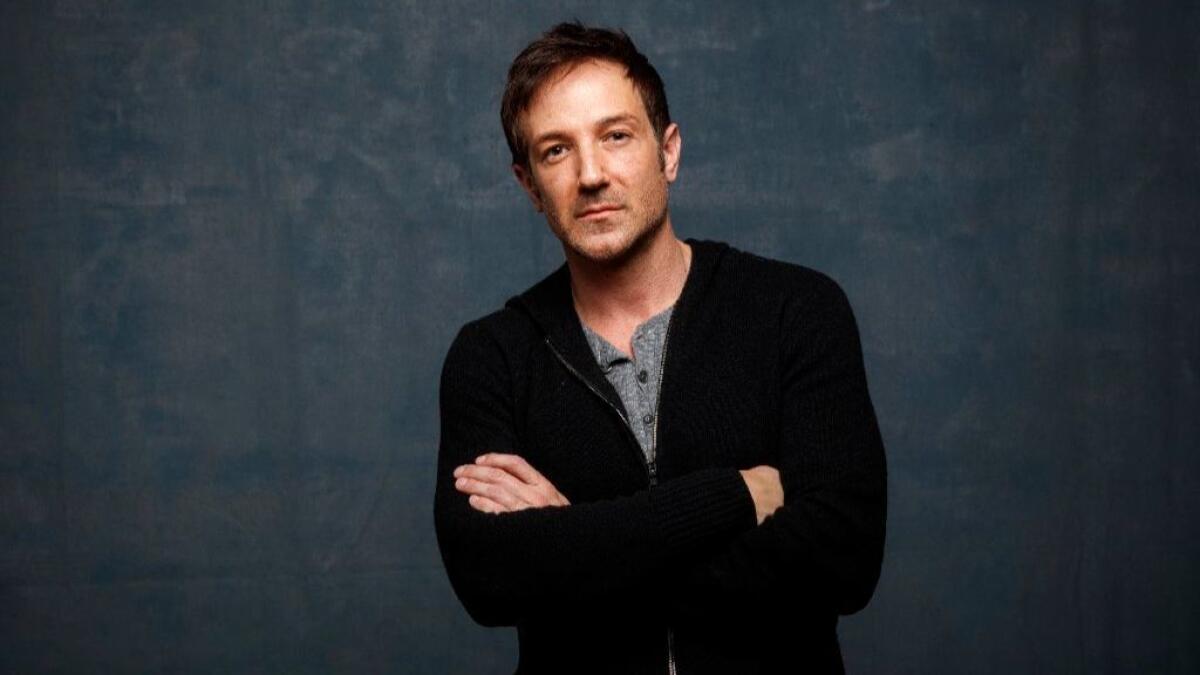Sports exposé becomes a life-or-death international thriller with ‘Icarus’

One man’s ploy to reveal the futility of sports doping tests, using himself as a steroid-fueled test subject, takes an unexpected turn in “Icarus.”
Filmmaker Bryan Fogel, an amateur cyclist, had nearly completed his documentary in November 2015, with himself as the focus of a scheme to successfully use performance-enhancing drugs in amateur competition and escape detection. “I wanted to expose something for the greater good,” said Fogel, who shows himself on camera, injecting banned substances into his exposed backside as part of a strict doping regimen.
For the record:
10:45 a.m. Feb. 22, 2018An earlier version of this post misspelled producer Dan Cogan’s last name as Kogan.
His chief accomplice was Grigory Rodchenkov, then-head of Russia’s national anti-doping laboratory, whom Fogel met in mid-2014 when the doctor spoke on anti-doping at a symposium in the United States. The jovial and, it turns out, corrupt physician, coached Fogel in his doping regime and helped devise a method for the cyclist to evade discovery. In late 2015, Rodchenkov was forced to resign his post when the World Anti-Doping Agency released a 335-page report that implicated him in an alleged Russian state doping program.
Rodchenkov had a complicated history, having once been imprisoned by Vladimir Putin’s government yet also celebrated as a force behind Russia’s triumph in the 2014 Sochi Olympics. As a key figure in an international scandal, the doctor feared he would be assassinated. But Fogel bought him a plane ticket, and the doctor fled to the United States.
He … is potentially the biggest whistle-blower to ever come forward in Russia and certainly the biggest whistle-blower in the history of sport.
— Bryan Fogel
What happened next is the substance of the Academy Award-nominated “Icarus,” as Rodchenkov details widespread and systemic abuses — whistle-blowing on the very operation he supervised — information he also shared in a May 2016 New York Times report. Such revelations led the International Olympic Committee to ban Russia from the 2018 Winter Games in Pyeongchang, South Korea, where the country’s 169 athletes are now competing under the name Olympic Athletes From Russia.
“He … is potentially the biggest whistle-blower to ever come forward in Russia and certainly the biggest whistle-blower in the history of sport,” said Fogel, who was dizzied by the sudden pivot, as his sports exposé became a life-or-death international thriller.
“Most of what we shot before was irrelevant,” said producer Dan Cogan. “We had to throw the old movie out.”
Cogan, whose Impact Partners backed “Icarus,” faced urgent concerns unseen before in a 20-year producing career. “We’ve done films with very complicated and controversial legal situations,” he said, noting Kirby Dick’s 2015 “The Hunting Ground,” about sexual assault on college campuses. However, Cogan had never dealt with a subject “whose life was in real danger and who was relying on us to protect him. That was completely unique.”
The filmmakers had to keep Rodchenkov secure not only from the Russians but also from American law enforcement. And in addition to finding a lawyer to handle Rodchenkov’s case, not easy due to many firms’ conflicts with Russian client interests, the filmmakers had to protect the footage from Russian hackers who had already successfully raided Rodchenkov’s email account.
All of this makes “Icarus” gripping in a way that has nothing to do with bicycles. “We wanted to give viewers the feeling we had when we were in the middle of the revelation,” Cogan said, “and then the shock of trying to protect him, and then the anxiety of keeping him alive, and also of trying to get the truth out before there was another Olympic Games.”
To sustain that sense of immediacy, Fogel kept working on a final version of his documentary for five months after its premiere at the 2017 Sundance Film Festival. He knew he was lucky to have landed a huge story — one whose consequences continue to be felt — with an unforgettable character.
“It would have been very easy to villainize him,” Fogel said of Rodchenkov, “but that was not my experience. I knew him to be warm, I knew him to be caring. I knew him to be funny and I also knew him to be honest … I wanted to make sure the audience had an emotional connection to him and that he was portrayed as the person I know.”
The Oscar spotlight could help make Rodchenkov safer by making him more widely known in the United States, Cogan suggested. Despite everything, the film displays him as strangely upbeat and resilient. The producer traces that to Rodchenkov’s brush with death in an earlier failed suicide attempt when he feared imprisonment.
“His wife saved him,” Cogan said. “After that, every day that he lived was a day he didn’t think he would have had.”
WATCH: Video Q&A’s from this season’s hottest contenders »
More to Read
From the Oscars to the Emmys.
Get the Envelope newsletter for exclusive awards season coverage, behind-the-scenes stories from the Envelope podcast and columnist Glenn Whipp’s must-read analysis.
You may occasionally receive promotional content from the Los Angeles Times.







